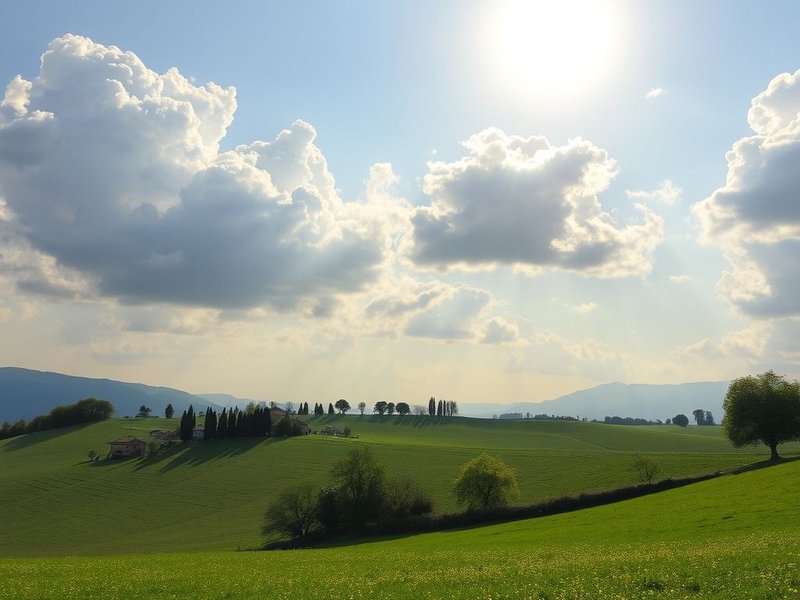How to Use the Proverb "Caldo di maggio dura poco e fa danno": Complete Guide to Learning Italian
Learning Italian also means discovering the richness of its idiomatic expressions. Today we will explore a very common proverb: "Caldo di maggio dura poco e fa danno". This phrase, seemingly related to the weather, hides a deeper meaning that will help you speak like a native speaker. We will understand together what it means, its origin, and how to use it correctly in different situations, enriching your advanced Italian vocabulary.

Table of Contents
- What does "Caldo di maggio dura poco e fa danno" mean?
- When and how to use "Caldo di maggio dura poco e fa danno"
- Real-life examples with "Caldo di maggio dura poco e fa danno"
- Other related expressions
- Conclusion
What does "Caldo di maggio dura poco e fa danno" mean?
- An event or situation that seems positive and promising at first, but is actually short-lived.
- Often refers to something that leads to negative consequences or disappointments, despite initial promise.
- The "caldo di maggio" symbolizes a phase of well-being or apparent success that is not destined to last.
- Literally, it alludes to the unstable climate of May, where a sudden heat can damage crops or lead to thermal fluctuations. The term "danno," in fact, refers to a negative effect or a detriment.
When and how to use "Caldo di maggio dura poco e fa danno"
- Who uses it? It is an Italian saying used by people of all ages, especially in more traditional or familial contexts. It is widely understood and recognized in various Italian-speaking regions.
- In which contexts?
- Situations where an initiative or project starts with great enthusiasm but quickly fizzles out.
- Periods of apparent prosperity or happiness that turn out to be brief and problematic.
- Comments on weather phenomena, but with a broader implication about the ephemeral nature of things.
- What tone does it have? Often carries a tone of warning, skepticism, or resignation in the face of something fleeting. It can be used to express disillusionment with unfulfilled promises.
Real-life examples with "Caldo di maggio dura poco e fa danno"
📍 Context (e.g., work)
- Person A: "Our new colleague came in with fantastic ideas, he seems like a genius!"
- Person B: "Yes, but remember: caldo di maggio dura poco e fa danno. Let's see how long his enthusiasm lasts."
📍 Context (e.g., personal)
- Person A: "I'm so happy, I won a small amount in the lottery!"
- Person B: "That's great! But don't spend it all at once, caldo di maggio dura poco e fa danno, you never know."
📍 Context (e.g., social)
- Person A: "The new trend of wide pants is everywhere, everyone is wearing them!"
- Person B: "True, but trends, you know, caldo di maggio dura poco e fa danno."
📍 Context (e.g., family)
- Person A: "The kids have been so quiet and well-behaved all morning!"
- Person B: "Don't trust them too much; it's a caldo di maggio that won't last long, they'll be wild soon."
Other related expressions
| Related Expression | Brief Meaning | Brief Example in Italian |
|---|---|---|
| Fuoco di paglia | Something that starts with great intensity or enthusiasm but quickly burns out. | "Their love was a fuoco di paglia." |
| Not all that glitters is gold | Appearance can be deceiving; not everything that seems valuable or good is truly so. | "It seems like a golden opportunity, but not all that glitters is gold." |
| Sailor's promises | Promises made lightly that are unlikely to be kept. | "He made me many promises, but they were just sailor's promises." |
Conclusion
The proverb "Caldo di maggio dura poco e fa danno" is a gem of Italian folk wisdom, useful for describing fleeting situations that lead to disappointments. It helps you better understand Italian culture and enrich your vocabulary.
Want to test what you've learned? Share in the comments a sentence using "Caldo di maggio dura poco e fa danno" or a story where this proverb would have been useful! And to delve deeper into the use of Italian prepositions, take a look at our article on Simple and Articulated Prepositions.